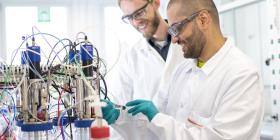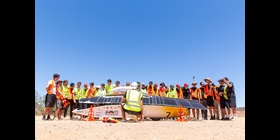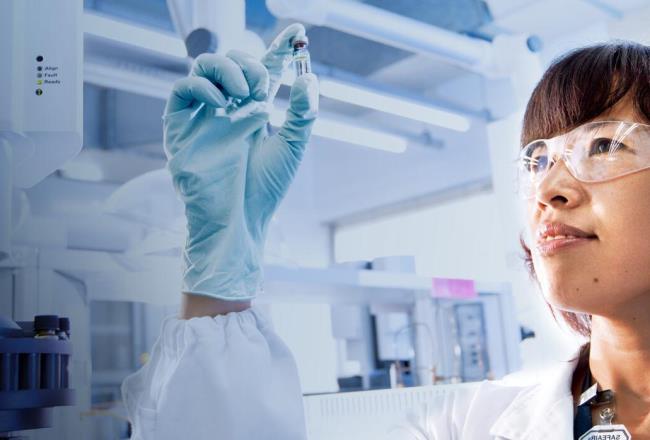
Innovating for a sustainable future
That's why innovation and sustainability go hand in hand at Covestro. Because our vision is to fully align the company with the circular economy. To achieve this goal, sustainability is an integral part of our innovation strategy.
We contribute to a more sustainable future with innovative products, technologies and solutions. We pool knowledge, resources and competencies in such a way that our experts in the field of innovation and sustainability can constantly fill our innovation pipeline with new developments that contribute to the circular economy. This is our recipe for success in realizing our corporate vision.
The industry needs to speed up in order to develop sustainable innovations. Velocity and innovation may seem paradoxical at first. But with the right framework conditions, the chemical industry can also drive developments forward more quickly.
We re-think plastics
Innovative plastics are an integral part of everyday life and numerous important industries. As one of the world's leading manufacturers of polymer materials such as polycarbonate and polyurethane, Covestro is paving the way for the circular economy by continuously improving existing products and developing sustainable innovations. With their unique properties, versatility and stability, plastics can help find solutions to challenges such as climate change and global trends such as urbanization and mobility change.
Covestro is setting new standards in the development and production of plastics and intermediate products for growth industries such as the automotive, construction and electrical industries. A steadily growing portfolio of more than 10,000 products and a strong international network of research and development centers testify to our innovative strength.
For us, sustainable innovations go beyond products – with customer-oriented services, new business models and process efficiency. In doing so, it is our central concern to always create added value – in the form of growth, profit margins and, above all, benefits for society and the environment.
We always think innovation and sustainability together, making a decisive contribution to translating regulatory and policy developments into future opportunities for more impactful and sustainable innovations.
White Biotechnology: Plant-Based Raw Materials for Chemicals on high demand
Covestro is setting the course for sustainable growth in the field of industrial ("white") biotechnology. Renewable raw materials can be used to produce more sustainable chemical products with the help of enzymes and microorganisms. More and more products based on biotechnology will be added to our product portfolio.
- Bio-based aniline: For the first time, Covestro has succeeded in using a special microorganism to extract the carbon required for the production of the basic chemical aniline entirely from plant-based raw materials. Until now, aniline has been produced with fossil raw materials such as crude oil, which releases CO2.
With a production capacity of more than one million metric tons, Covestro is one of the leading manufacturers of aniline. The chemical is the basis for MDI, a component of rigid polyurethane foam, which is used, for example, in building insulation or insulation of refrigeration units. In a pilot plant that went into operation in Leverkusen in 2023, the production of bio-based aniline is being tested on an industrial scale.
- Bio-based HMDA: Biotechnology is also expected to enable the production of hexamethylenediamine (HMDA) on an industrial scale. Together with the Californian biotech company Genomatica, Covestro has succeeded for the first time in using biotechnology to produce HMDA from plants instead of fossil raw materials. A pilot plant has already produced significant quantities of the bio-based raw material of high quality and purity. HMDA is a key component for a widely used nylon grade and an important component of components for paints and adhesives. Applications can be found in the automotive industry, in the construction sector as well as in the furniture and textile industries, among others.
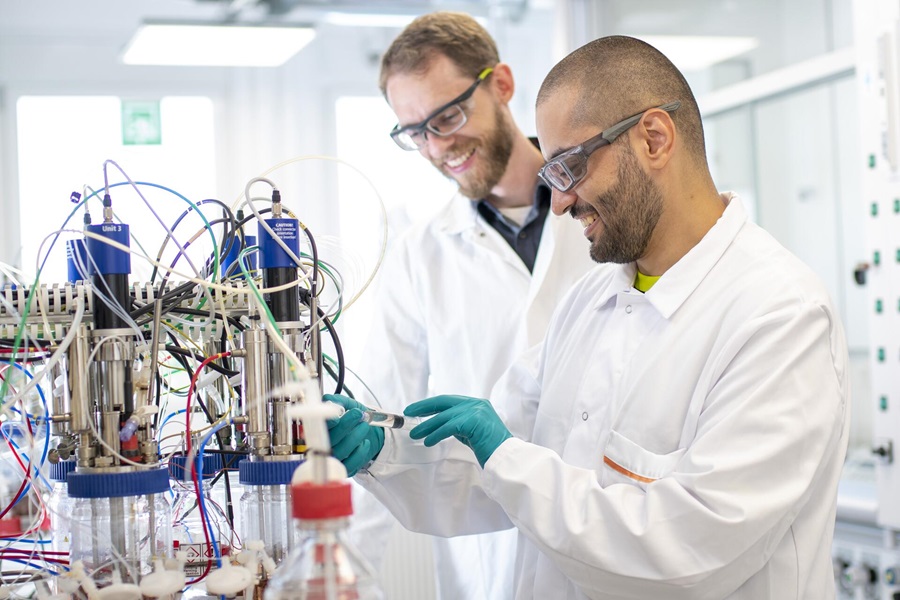
Covestro and Team Sonnenwagen
Among other things, Covestro is developing material solutions for electromobility – because global challenges such as climate change and increasing resource consumption require new concepts for the mobility of the future.
Covestro has been the main sponsor of the Sonnenwagen team for many years and is a proud partner of the solar car of the same name. The vehicles, developed by students of RWTH Aachen University and FH Aachen, have already taken part in numerous races. The models can reach speeds of up to 120 kilometers per hour. Last but not least, the use of materials is crucial for the success of the Sonnenwagen. Lightweight, strength and aerodynamics play a role in this. In addition, the cars must be able to withstand strong mechanical vibrations as well as extreme climatic conditions such as heat, humidity and high UV radiation. For this reason, Covestro is sending innovative raw materials into the race, which can be found, among other things, in the seat shell and the casing of the battery.

Novel insulating foams improve the cold chain of food
A good third of all food spoils on the way from the harvest to the consumer due to insufficient refrigeration. Covestro manufactures the components for rigid polyurethane foams that can be used to maintain the cold chain in a more energy-efficient way and reduce the deterioration rate of foodstuffs. The material also helps to make refrigerators more energy-efficient.
This is because such insulating foams insulate very efficiently – and are therefore used worldwide to insulate warehouses, trucks, supermarket refrigerated counters as well as refrigerators and freezers in private households. Covestro is constantly working on the further development of the material: With a new microfoam, we have succeeded in reducing the already tiny pores by up to 40 percent, thus increasing the insulating performance of the foam by up to 10 percent.


Products
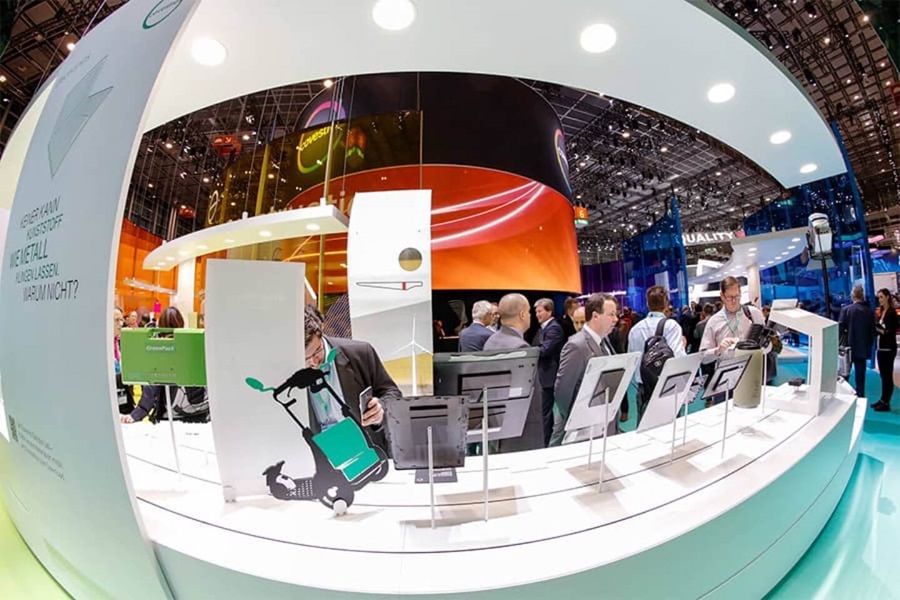
Our material innovations enable or improve countless products and technologies that surround us each day. Often, they replace a traditionally used component, making the overall application more sustainable or efficient. One example is a new hardener we developed for automotive coatings. Because its carbon is sourced from bio-based, renewable materials instead of the conventional fossil fuels, it reduces the carbon footprint of the coating – and, consequently, of the vehicle on the whole.

Customer focus

Customer-focused, forward-looking services are another important aspect in our broad understanding of innovation. Take, for instance, our technical customer services, where we help to optimize individual customer production tasks for the benefit of their business. Or our innovative logistics concepts: Covestro supports its customers’ order management processes by taking external factors, such as extreme weather conditions, into consideration in the delivery process. This enhances the reliability of supply as much as possible and prevents bottlenecks.

Business models
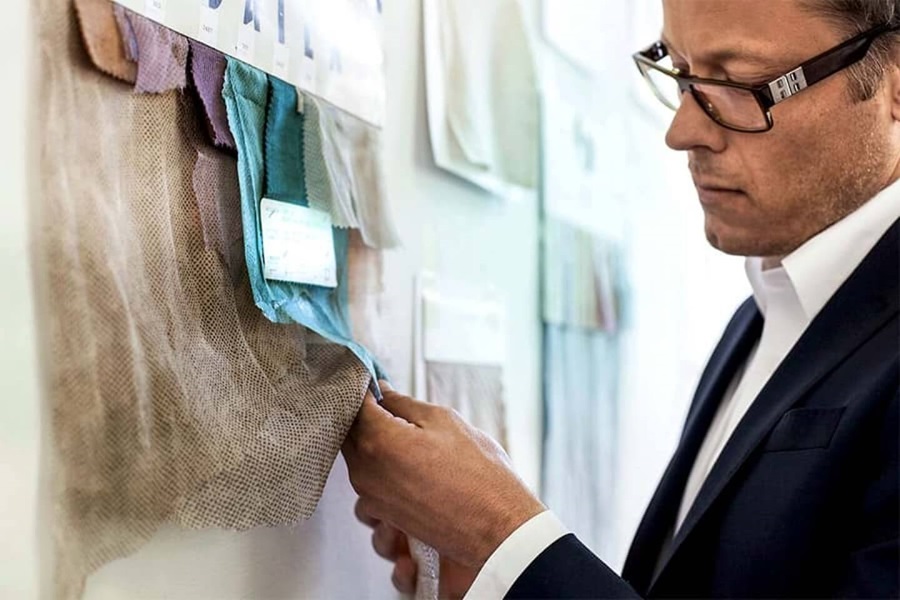
Innovation at Covestro also comes in the form of new business models. Very often it is not revolutionary ideas, but rather simple things that no one has ever thought of before. One example of an innovative business model originated in the fashion industry. Covestro developed a process for fabricating a woven fabric with a polyurethane coating that is suitable for use in clothing and shoes. It is much more eco-friendly and safer than the conventional method. The process is part of a new holistic program that connects the whole value chain – suppliers, manufacturers and brand owners.

Processes

Covestro optimizes its own processes by so-called functional innovations. For example, we have developed our own energy management system to run our production plants as energy-efficiently as possible. As a result, our company has reduced energy consumption per facility by an average of ten percent.









